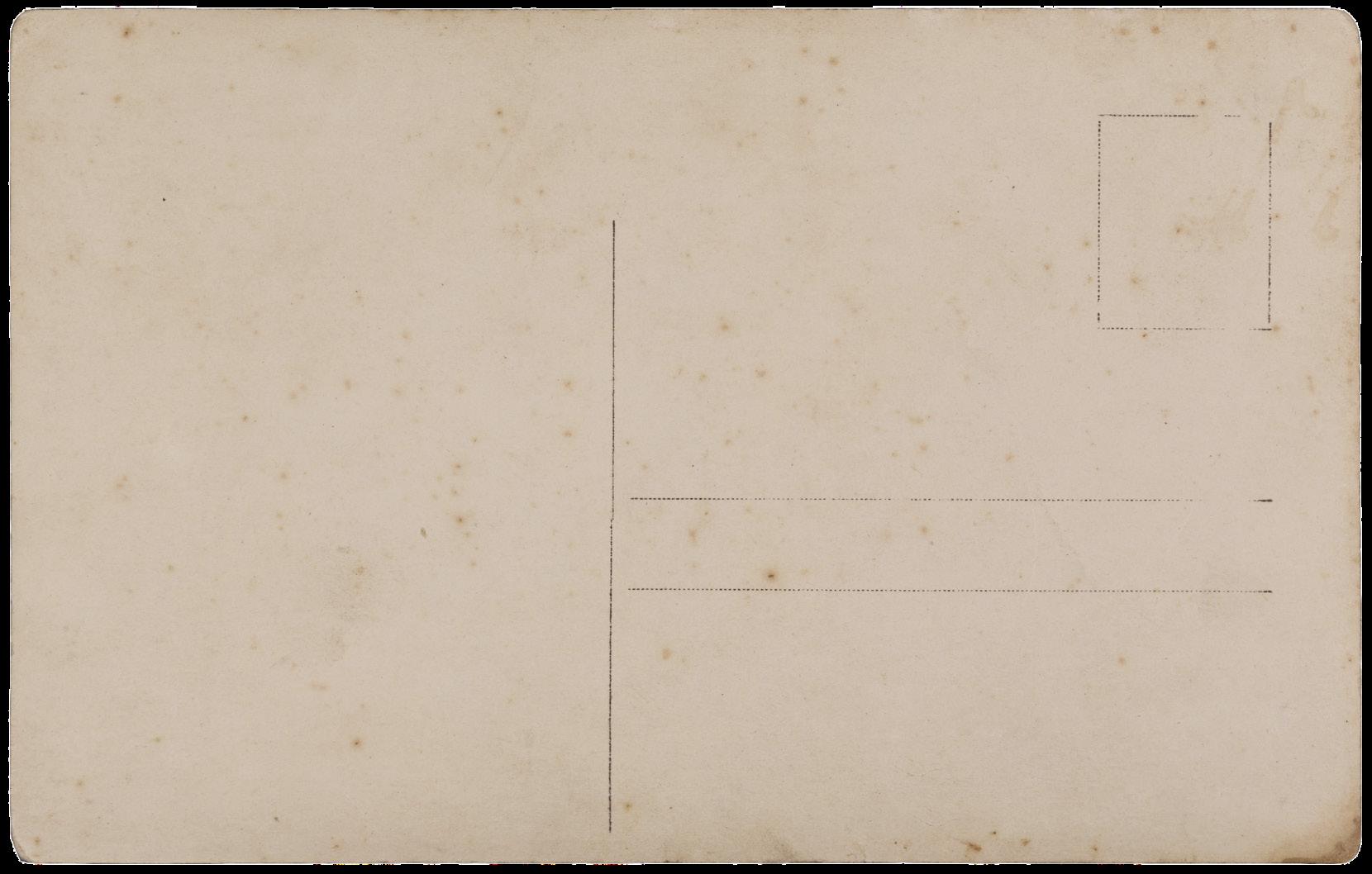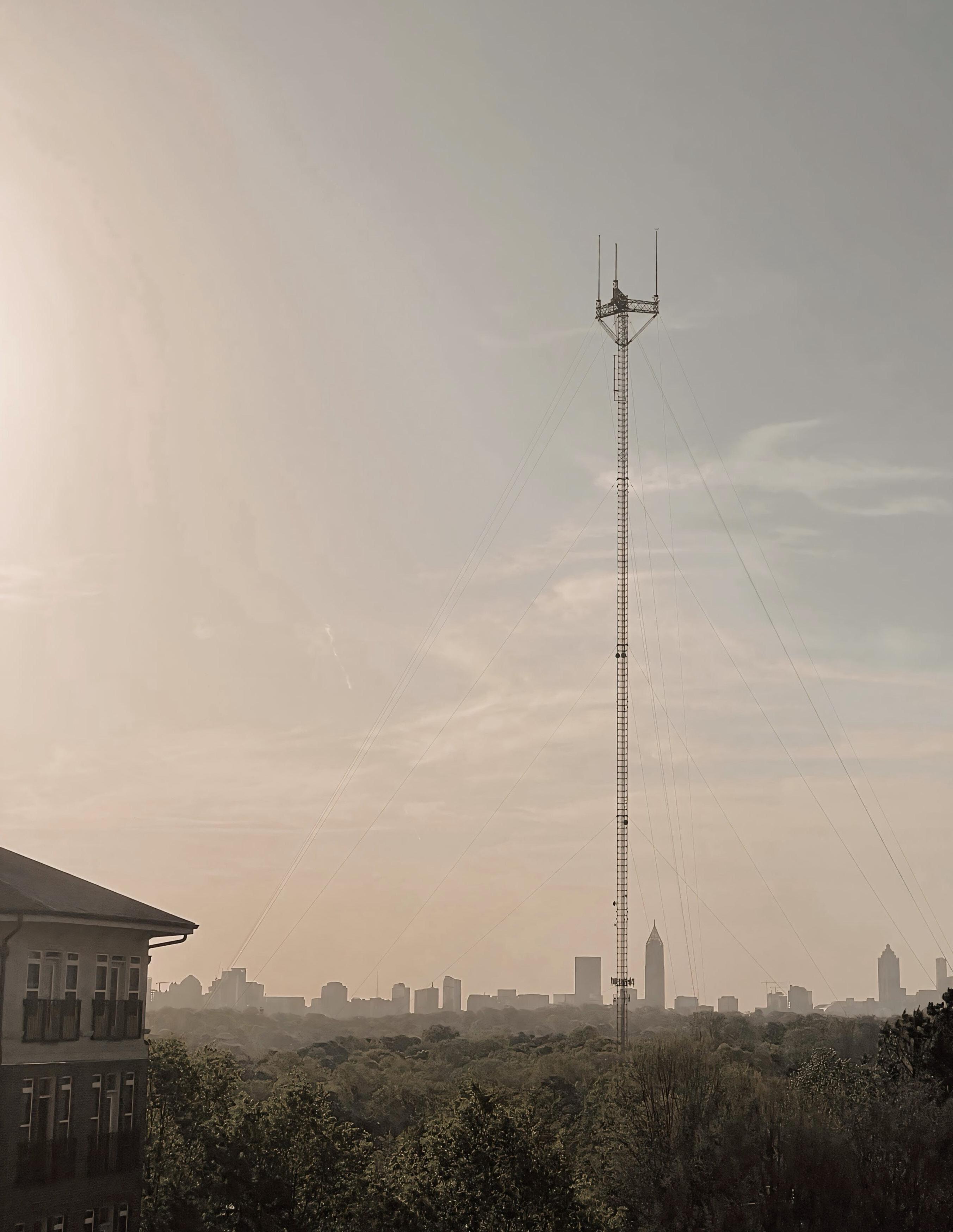






Meaning “the way” in Latin, In Via is a journal of Christian thought at Emory University. Through the publication of creative and intellectual expressions inspired by the gospel, we hope to contribute a clear, relevant, and compassionate Christian worldview to campus conversations.
Our name comes from John 14:6, where Jesus says, “I am the way, and the truth, and the life. No one comes to the Father except through me.”
Emory In Via gratefully acknowledges the support of the staff and members of the Augustine Collective, a network of Christian thought journals on college campuses throughout the United States and the United Kingdom. We are thankful for the support of our faculty advisor, Dr. Joseph Crespino, and staff members from Emory’s Office of Spiritual and Religious Life.
emoryinvia@gmail.com
www.emoryinvia.wixsite.com/my-site
@emoryinvia

P.S. Scan to listen to In Via’s podcast “On the Way”
EDITORS IN CHIEF
Ulia Ahn
Brandon Choi
DIRECTOR OF DESIGN
Hannah Im
MANAGING EDITOR
Emma Lee
ASSOCIATE EDITORS
Carnes Mathis
Austin Park
Samuel Salameh
STAFF WRITERS
Daniel Bell
Brandon Choi
Richard Hermanto
Emily Jang
Christine Kim
Emma Lee
Carnes Mathis
Eden Melka
TREASURER
Jacob Choi
EVENTS & OUTREACH
Sharon Hwang
SOCIAL MEDIA
Christine Kim
INTERRELIGIOUS COUNCIL REPRESENTATIVE
Joonha Ko
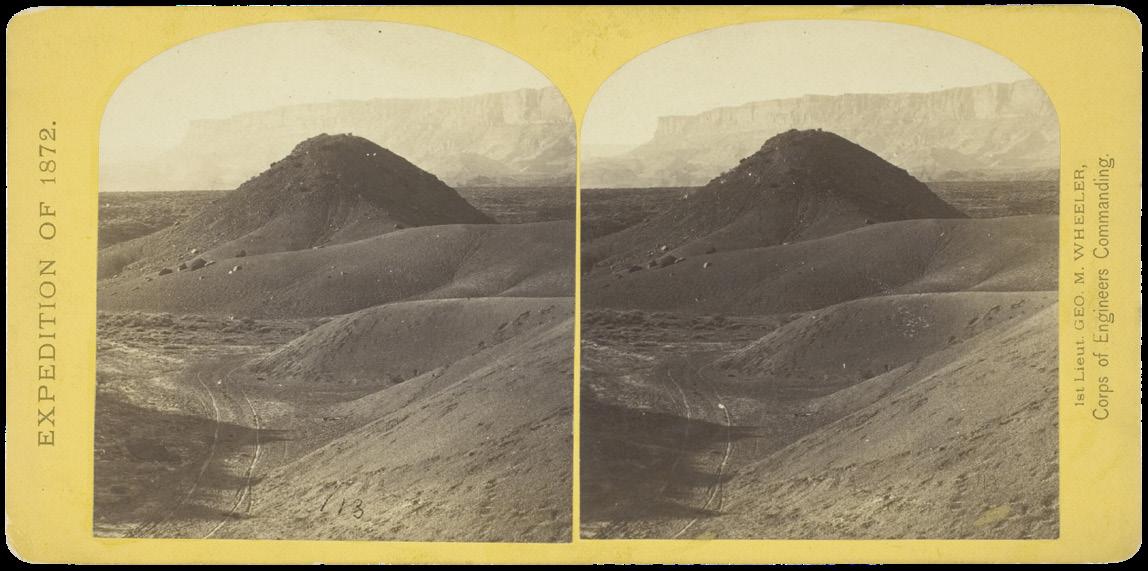
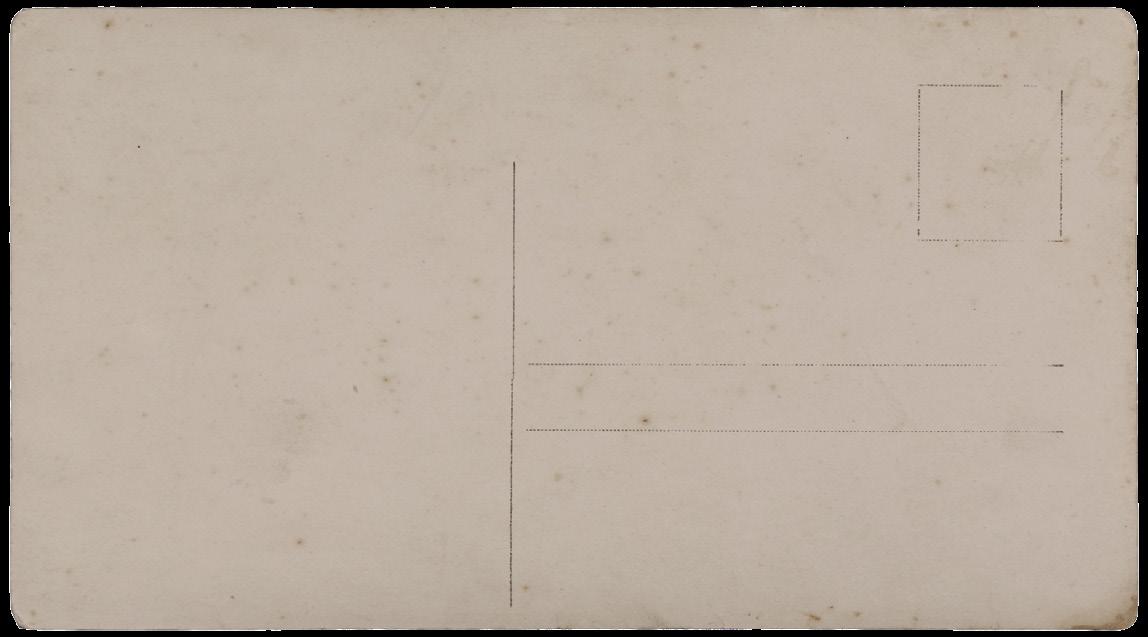
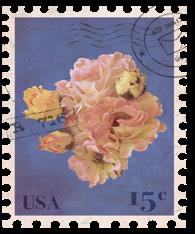
 The Vermillion Cliff | William H. Bell, 1872 Shoshone Falls, Snake River, Idaho | Timothy O’Sullivan, 1874
The Vermillion Cliff | William H. Bell, 1872 Shoshone Falls, Snake River, Idaho | Timothy O’Sullivan, 1874
Letter from the Editors
Ulia Ahn & Brandon Choi
Sister to Sister
Mathis
I’ll Be Your Strength Christine Kim
I Am With You
Eden Melka
Home Renovations
Brandon Choi
Agoraphilia
Richard Hermanto
P.S. I Love You
Emily Jang
Jesus Says Goodbye
When writing a letter, an author may re-read their message, reflect upon it, and feel prompted to draw their recipient’s attention to something particularly noteworthy. Through the use of a postscript, authors can do exactly that. While these auxiliary additions are shorter in length, they hold unique influence as they are the last slivers of thought that recipients are left to consider.
There are many such moments in the Bible where authors conclude their writing with important reflections, instructions, and encouragements. The apostles conclude their letters to churches in particular ways: Paul leaves the Corinthians with wishes of grace, John concludes his second letter with promises of reconciliation, and Jude brings his letter to a close by dedicating all glory to God. These varying conclusions speak to how each apostle felt compelled to remind their recipients to different facets of faith.
While we have all received the same letter of salvation through the Bible, it speaks to us in personalized ways – what is God trying to impress upon your heart? The pieces in this issue delve into the theme of “Postscript” and the ways in which His letter continuously calls out to us.
Faithfully yours,

 Ulia Ahn Brandon Choi
Co-Editors-in-Chief
Ulia Ahn Brandon Choi
Co-Editors-in-Chief
P.S. Reflect which of these pieces resonate with you, and ask yourself why? Maybe God is trying to lead you towards something special!
As I pen this letter across the vast expanse of time, I find myself marveling at the world you live in- a world so different from my own, yet profoundly similar in its desire for divine wisdom and guidance. In my time, Scripture was the very breath of our existence, a constant companion in our daily lives, shaping our thoughts and actions. It seems to me, as I peek into your digital age, that the essence of Scripture has been transformed into what you might call today a “P.S.”- a postscript to the endless flow of information that fills your days.
I see you, living amidst a deluge of emails, notifications, and digital communications, each clamoring for your immediate attention. Amidst this noise, the timeless words of Scripture wait patiently, like a gentle whisper at the end of a long correspondence from life, hoping to catch your eye with its divine postscript. This “P.S.,” though often brief, carries with it the profound wisdom, comfort, and guidance that your soul yearns for.
Sister, I see you rushing through your days with things always in your ears. I’m curious…does it help you hear better or does it prevent you from hearing at all? Do not get lost in this world. Remember to listen. Remember who is in your presence. Pay attention to them. You are only granted each moment once, and trust me, it will go by quicker than you can comprehend-

a string of moments, almost like the little photographs and tiny moving people in the glass box you take with you- a string, a never-ending string. Remember who you also take with you, who lives in your heart. Never cut this string. Tie the string around your finger and keep it theremarked by the one who first loved you. Keep it there as a reminder to abide in His love. The more you abide in His love, the less stringy your life will feel. Stay there, and don’t forget to take those things out of your ears every once in a while. Truly listen. This is when you will hear.
Finding the Divine Whisper in your era requires an intentional pause, a moment to quiet the noise, and listen for that still, small voice that speaks directly to your heart. It might be a verse that surfaces in your mind during a challenging moment or a passage that offers comfort and reflection during a break in your day. These divine whispers are God’s personal messages to you, tailored for the very moment you encounter them, guiding you through the complexities of your life with eternal wisdom.
Sister, I have a confession to make. I told you not to get lost in this world. Let me rephrase. From time to time, you will get lost. Remember that you know how to find your way back. Remind others that they also have a way back. Untie your string and double-knot it on their finger. They need your hope. Don’t hide it from
them. Tell them that the hope does not live in the glass box. It is too big to fit. Tell them that the hope cannot be heard in those ear things. It is too quiet, resounding.
I encourage you, dear friend, to seek out these moments of divine intercession, to allow the sacred scriptures to infuse the aspects of your daily routine with insight. Whether it is in the quiet of the morning,in the midst of a busy day, or at the solitude of night, let the Word of God be a lamp unto your feet and a light unto your path.
Embrace the personal nature of Scripture, as though each verse were a handwritten note from the Divine, penned specifically for you in this moment of your life. Approach the Bible with an open heart, inviting God to illuminate the words that will speak to your current circumstances, transforming your reading from a routine exercise into a vibrant dialogue with the Creator.
To live out the “P.S.” of Scripture is to allow these divine whispers to shape your actions, decisions, and interactions. It is to walk in the teachings of the Lord, embodying
forgiveness, peace, and hope in every aspect of your life. Share these encounters with Scripture with those around you, for the stories of how God’s Word touches your life can uplift and strengthen the faith of others.
In conclusion, my dear sister, I extend to you a daily invitation to slow down and attune your heart to the voice of God amidst the hustle and bustle of your modern existence. Remember that, no matter how frenetic your life may seem, the Lord is still speaking to you, offering words of life, hope, and transformation through the sacred postscripts of Scripture. May you find guidance and joy in these divine whispers, navigating the complexities of your world with the ancient wisdom that forever holds its relevance.
Yourstruly,
Teresa of ÁvilaP.S. For whatever was written in former days was written for our instruction, that through endurance and through the encouragement of the Scriptures we might have hope.
Romans 15:4
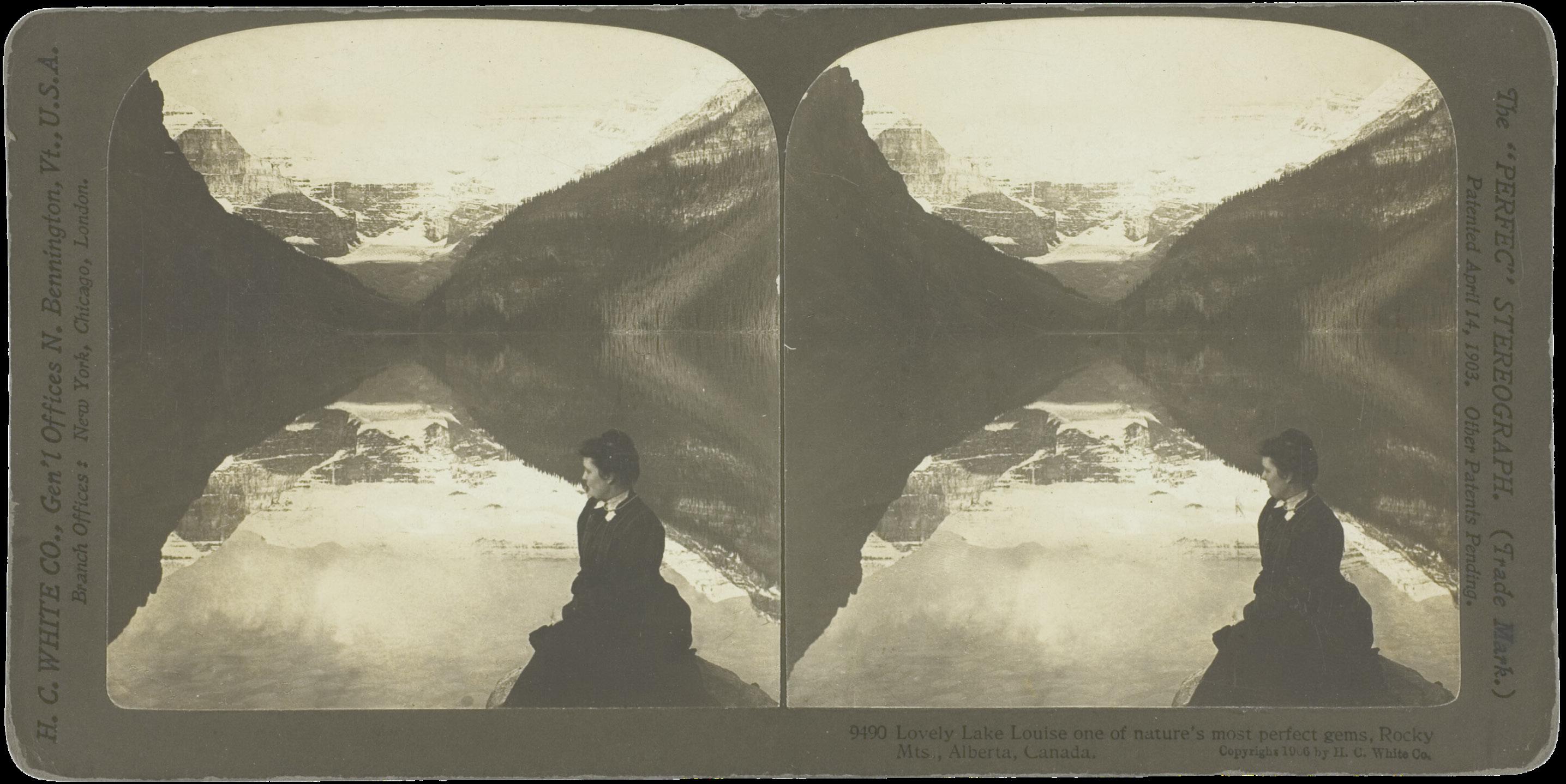
Lovely Lake Louise one of nature’s most perfect gems, Rocky Mts., Alberta, Canada | H.C. White Co, 1904 At Shottery Brook | James Leon Williams, 1892
The water’s reflection in Lovely Lake Louise is a reminder of how God unites us with those who came before. While life looks different from the lives of the women At Shottery Brook, threads of womanhood remain today. The water’s reflection and shared humanity that transcends centuries emphasizes our shared identity as children of God.
After one Sunday service, someone asked me why I was playing Tetris but I was actually on my Google Calendar. These days I feel like I’m being hunted down by everything— from having to study for exams, run experiments, or even text people back. Sifting through my calendar has become my coping mechanism to avoid the feeling.
To be a student is to fill many shoes. We’re expected to balance our studies with extra-curriculars, a social life, and good habits. We’re on the road of many necessary growth pains, discovering who we are and expanding our minds. Thus, it’s not necessarily a “bad” thing to be busy. It’s not against God’s design to diligently do our work. But where is the boundary between being diligent to my work versus being controlled by it? How God wants me to live?
In the morning, my Bible App has been telling me that I need to read through 4 chapters everyday. But today, I need to book it. I turn on the audio as I complete my morning routine. There’s no time for sit-down-pretty-journaling-QT.
I feel His gentle but eager gaze on me. Time is chasing me but He’s so unbothered. He’s waiting and smiling as if He has all the time in the world. Though, there’s a bit of sadness in His eyes. Buthe’sGod–He’llgetit.
I blast the Bible Reading plan into my earphones as I frantically reach the crosswalk. My bloated and burning legs are begging me to slow down, but I don’t have a choice. I need to shrink the 15 minute commute into a 10 minute one or else my Tetris board will eat away my lunch time. A couple of verses go over my head. I promise I’ll be a more comprehensivereadertomorrow,Lord!
You can slow down. I’ll take care of you like I always have.
He’s always there–ready for me, excited about me, and concerned for me. He pours out all of who He is to me. How am I going to get away with my bare minimum efforts? He’ll get tired of me. Maybe He already is and He’s just not showing it. Maybe after I read all of the chapters in my Bible reading plan, stare a little longer at this verse, or highlight it a bit more, He won’t get tired of me. ThankyouGodfortoday’smessage. Iknowwegottadebrief,butIactuallydon’thavethatmuch timerightnow.ButIpromiseafterthislastclasswecantalk!
3 P.M. hits me with the worst slump of the day. The six dollar vanilla latte isn’t lifting my spirits or my eyelids at all. To keep myself awake, I click on my Google Calendar. It tells me that even if I apply to jobs right now, I’ll fall behind and will perhaps never make it in life, so I better get to it! God, I’m so stressed… What if I become a disappointment after college?
I’lltakecareofyou.But,don’tyouthinkyou’redrinking toomuchcoffeethesedays?
After class, all I want to do is see my friends and be head-empty. Google Calendar nags me that as soon as I get to the lab to finish my experiment, I need to grab dinner, and book it for Bible study. I can’t be late to that one, at least! I’ve been pushing back time with God so I should try to make up for it. IpromiseIwon’tdisappoint youtonight,Lord.I’lldietomydesiresforyou.I’llbethe person you want me to be. I’ll dedicate my entire life to you!
But I’m micropipetting my cells. An hour in the lab turns into two hours. Afterward, I’m waiting at the crosswalk for the light to signal for pedestrians. My bag feels so heavy but there’s no time to take a break. Today’s skies are uncharacteristic of Georgia. They’re so low and gray.
My Christian duties begin at 7 P.M. Almost every other word I speak is Christianese. I hope this is enough for God and that He sees how much effort and work I’m putting into leading this Bible study.
But why am I so drained? Shouldn’t I be feeling more fulfilled by this? I want to run away. I’m so sorry God for feeling this way. There’s something wrong with me.IpromiseI’llfigureoutwhatitisandfixit.
I’m sprawled in my bed. It’s 1:13 A.M. and I should have thrown my phone to the ground an hour ago, but my eyes are glued to the screen. I don’t want to think or feel right now. I don’t want to be in the cold chasm of nothingness before complete fatigue permits my sleep.
Iwanttotalktoyou.I’llgiveyourealrest. In the morning, I turn off my alarm after it rings for the 5th time. Feeling behind again, I open up my calendar to make sure I haven’t lost that much time. The Bible
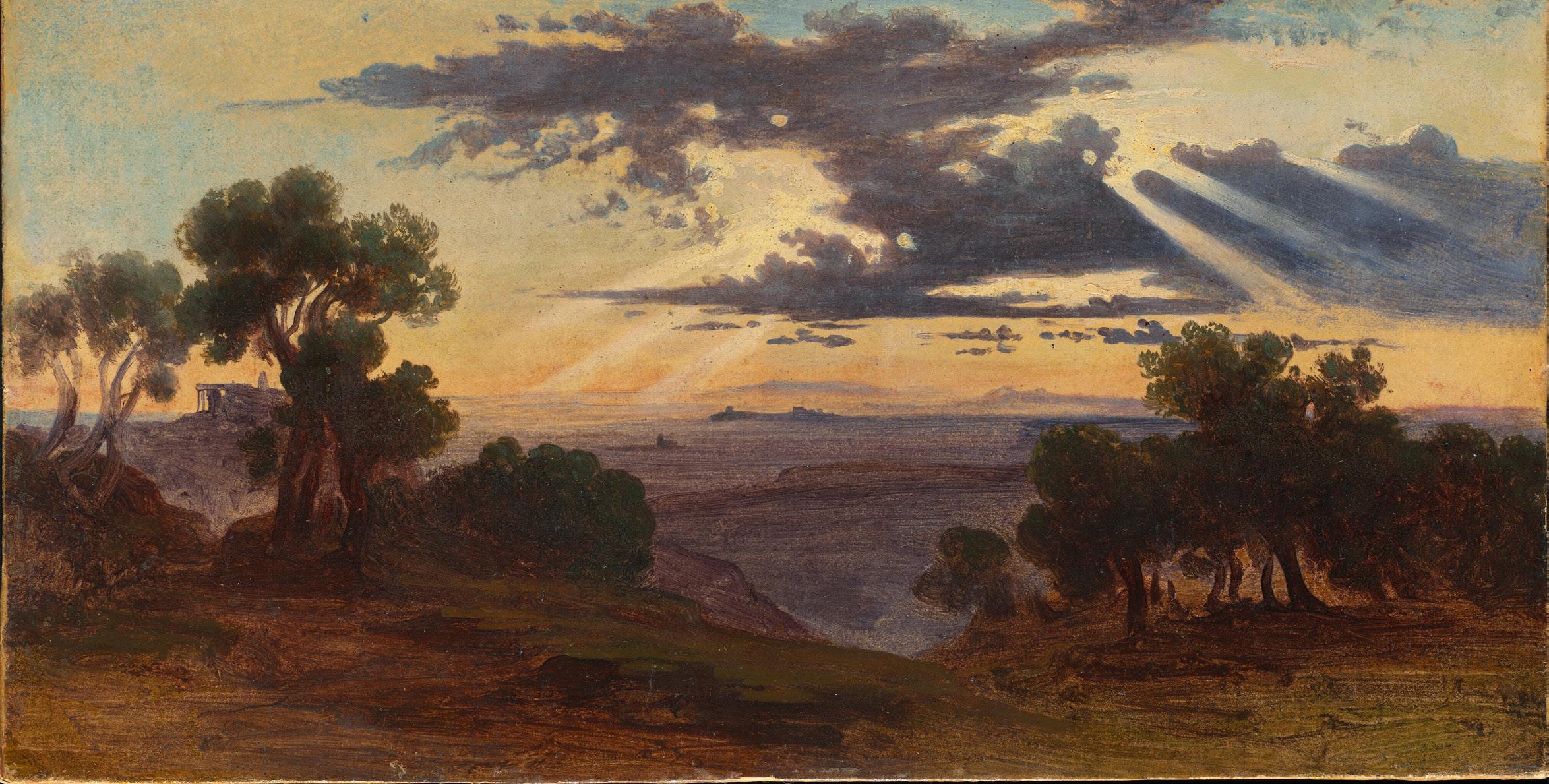
The joy of the Lord is your strength.
reading plan notification interrupts my restlessness and tells me that I need to read another 4 chapters. I follow yesterday’s habits and turn on the audio. Jesus,Ineedyou.
After lunch, I trudge uphill to my lab and reach the crosswalk. The day is prettier than yesterday but my footsteps are heavier.
Christine.
He’s talking to me again. I need to focus though, because after the lab I need to book it for my biology class. I need to get my coffee on time too or else the midday slump is going to hit me again. In hindsight, my late morning begins to make me anxious. How many Tetris pieceswillImisstoday?CanIgeteverythingdoneorwill I be behind?
ThejoyoftheLordisyourstrength.
His voice interrupts the spiral.
ThejoyoftheLordisyourstrength.
I stop at the crosswalk.
ThejoyoftheLordisyourstrength.
Tears well up in my eye as the pedestrian signal turns on.
Time is still hunting me down. My experiments loom over my head like giants. I’m still doubtful about my future, insecure about not doing or being enough as a student. My last app on my phone is still open to the Tetris board, but something is different now. His presence wraps around my soul tighter than the warmth of the sun, lifting it up from the chasm and coldness it was hiding in. The sincerity of His words shakes it out of its slumber. And I’m at a loss for words. I don’t know how to respond.
I’msorry,God…Thankyou.
Sun Breaking through Clouds above the Roman Campagna | Johann Jakob Frey, 1844
The sun breaking through the clouds in Frey’s painting is not enough to depict how God’s presence wraps around our souls. Just as we become speechless when looking out over a view like the Roman Campagna, God’s love silences the worry in our hearts.
Lord, I see that You love my family and bless those around me, but does Your plan involve me too? My life itself is a blessing. My own mother laughed at the thought that I would even be able to exist – but what do I do with my existence? I have lied, doubted, and been everything but perfect. Am I allowed to call on You?
Issac, I am with you.
Lord, I am constantly running and exhausted. I feel so alone in a sea of strangers. My closest brother is my greatest adversary, so can I even trust anyone at all? Now You are calling me to journey to a new land and leave everything I have ever known. How do I know that at the end of this path is a promise?
Jacob, I am with you.
Lord, the chains of Egypt are trapping but feel safer than a complete exodus from all I’ve ever known. How am I supposed to lead Your people out of slavery if I don’t even know if I can lead myself? Despite Your awe-inspiring signs, I am not sure if I believe in my ability to be worked through. You are the great “I am,” but I feel as if I am nothing.
Moses, I am with you.
Lord, I long to carry Your Ark, but I fear crossing dangerous waters. How do I trust in Your ability to make flooded streams dry so I can make my way? You
ARTIST’S STATEMENT
have called me to face the Jordan River and everything beyond it. I want to honor You, but how do I fight this fear?
Joshua, I am with you.
Lord, I am too young and I am too fearful. If You know all things, how do You not know how unqualified I am? You call me set apart, but I feel unprepared and belittled. As Your prophet, how do I make sure to relay Your message correctly?
Jeremiah, I am with you.
Lord, how do we make sure our congregation is truly preaching the gospel and not a dilution of it? Picking up our collective crosses each day has become laced with the fear of dropping it.
Church, when you gather together in the name of the Lord Jesus, I am with you.
Lord, I feel in constant battle with my flesh. How do I win the war with my sinful nature?
Child, you have been crucified with Christ. It is no longer you who live, but Christ who lives in you. And the life you now live in the flesh, you live by faith in the Son of God, who loved you and gave himself for you. It is not your job to win the war over sin, for I already have. I am with you.
Spring, No. 18 (from the portfolio “American Pictorial Photography, Series I” edition 146/150) | Clarence H. White, 1899
The lone woman represents the feeling of solitude and even loneliness we experience as followers of Christ. The flowers, however, signal spring and all the hope that comes with having a God who was always with our ancestors and will always be with us.
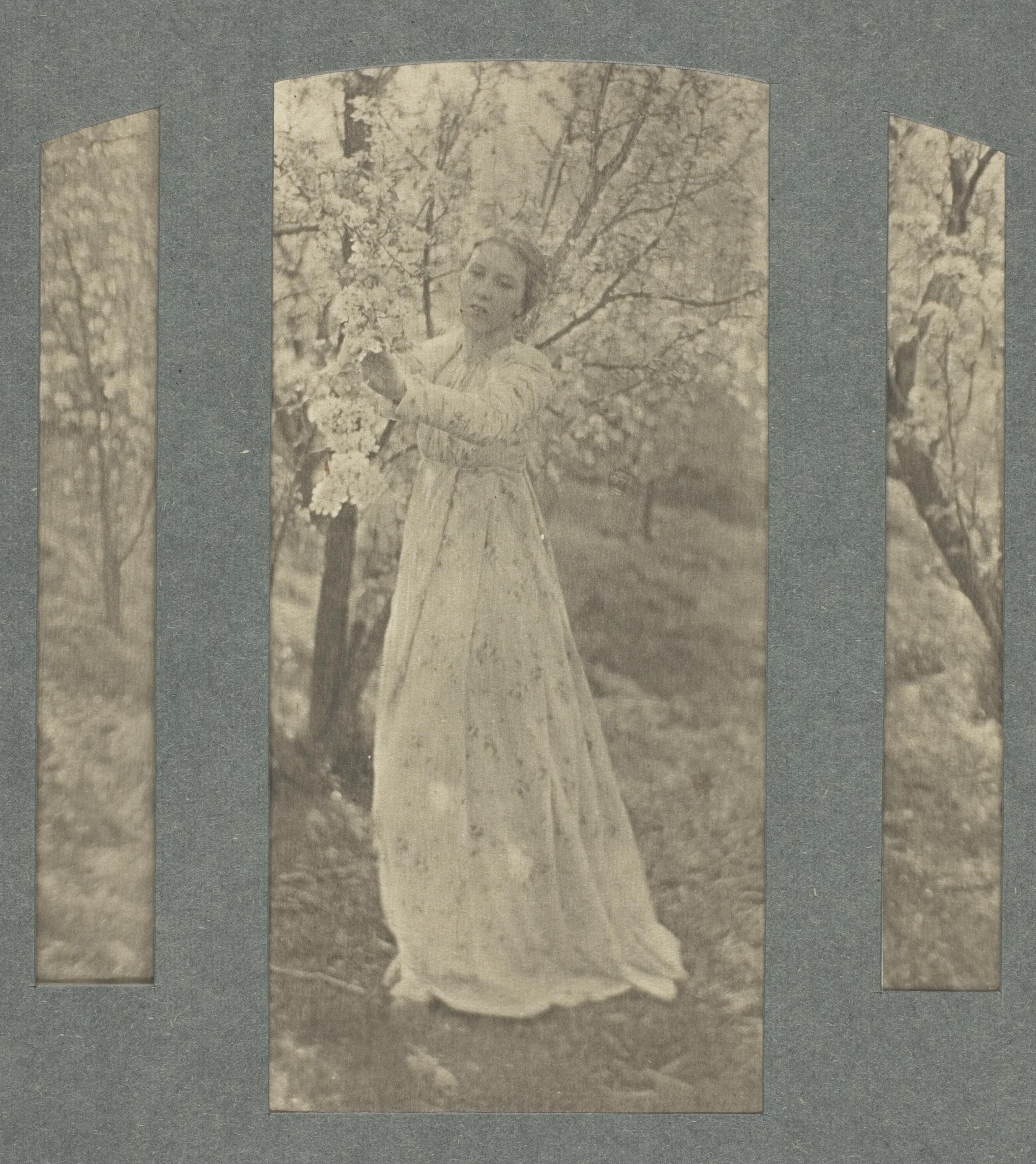
Ask me about my ideal house, and you’ll see my face light up with joy. “Big windows. Big big big windows,” I’ll say. I’ll rub my chin, look wistfully off into the distance and add, “bookcases–tall ones that reach from floor to ceiling and line the walls, one’s that you’ll need a stool to reach the top shelf. Oh! And an open floor plan. I adore open floor plans.”
Oh dear, you’ve got me going now.
“Warm lighting, high ceilings, lush greenery, and conversation pits! You haven’t heard of them before? Well, they’re these couches built into the floor where…” and on and on I’ll go.
My love for architecture and home design was one that was simple and earnest, so when I learned that I had been accepted to a study abroad program in London, I was nothing short of ecstatic. “Oh what a city…” I thought to myself. “The history… the buildings… the architecture,” I gushed. Upon moving into my dormitory hall in London, however, this anticipation quickly dissipated and was replaced by a deep conviction. London struggles with a ballooning homeless population that had reached over 10,000 by the summer I arrived. When leaving the dorms, walking to class, or taking the subway, the homeless would always dot the peripheries of my vision. My hopes for London were overlain with the shocking reality that people struggling with intense need inhabited the same city that I naively mused over. It was easy for me to give only fleeting thought to the fundamental protection that architecture provided and instead fixate on its alluring aesthetics. While I indulged in proportion and form, the
homeless longed for shelter and safety. That summer I had been reading through the book of James and was met with this passage one particular morning shortly after my convictions:
“If a brother or sister is poorly clothed and lacking in daily food, and one of you says to them, “Go in peace, be warmed and filled,” without giving them the things they needed for the body, what good is that? So also faith by itself, if it does not have works, is dead.”
James2:15-17
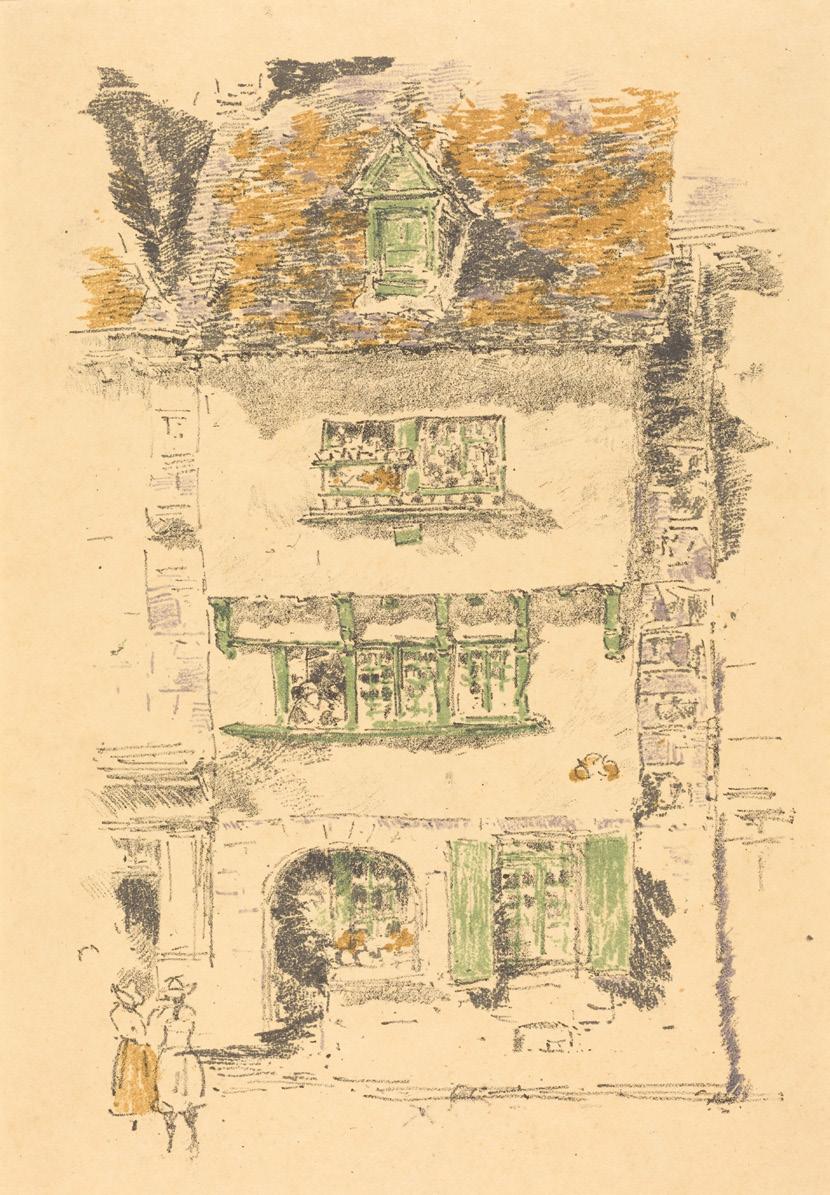
With my spirit stunned and smarting, I somewhat hesitantly resolved to respond to this conviction, to do more than give a bashful glance towards the homeless when walking past them. I had become familiar enough with the rhythm of the city to know that the homeless would seek shelter in the entrances of the subway stations in the case of rainy weather. When I opened the curtains before class one morning and saw a steady drizzle covering the city, I knew the time to act on my convictions had come. What could I do for the homeless? Cash, of course, but that seemed too simple. Maybe writing them a note? What to write? “Jesus loves you” seemed a little too trite, and “I’ll be praying for you” seemed too vague. After a few minutes of this internal back-andforth, I settled on writing encouraging verses from the Bible on the pages of my journal. I tore these notes out along the pages’ perforations, flipped to the back pocket of my journal, and snuggly inserted them alongside a small bundle of British pounds.
As opposed to walking past Euston station on my
usual walk to class, I turned inside and spotted a hunched man sitting cross-legged by the stairwell leading to the subways. Fumbling to close my dripping umbrella, my heart started pounding as my mind filled with thoughts of what I should say to him. Would you like some help today? Hi, I have some money for you? How are you doing? Do you know Jesus? What is your name? I was able to mutter a barely-coherent combination of these sentences as I handed him a note along with some cash. I tried my best to give him a genuine smile–a smile that hopefully revealed my earnest heart in a way that shone past my awkwardness. I walked out of the station with a new line scrawled in my journal: “Mark from Euston station. Pray for him.”
Each time I saw a homeless person looking up at me with eyes shining with pleas for help, my heart would feel a deep tug. Despite acting on these convictions, I was always left with a gnawing feeling of persistent heaviness. I couldn’t help but ask myself, “why was I helping these people? Was it truly out of care for them? Or was it to escape the guilt I might feel if I turned a blind eye?” My inability to find a definitive answer to these questions ate away at me. New names and new stations filled my journal but I could never escape the inevitable blanket of heaviness that draped over my heart after helping them. Why did my heart feel so heavy if I wastryingmybesttodogood?
land.”
IwonderhowBoazmusthavefelt…heobeyedjust likeIdid,buthowdidhefeelwhiledoingit?Didguiltalso eathimupfromtheinsideout?
“Boaz’s generosity was steadfastly joyous because he did not rely on his own ability to love–Boaz’s love was a reaction to understanding God’s overflowing love for the needy.”
Was my giving joyous? What was my giving in reaction to–was it God’s deep care for the needy? In all honesty,Imostlikelymissedthattruth.
“Boaz responded lovingly to Ruth because he saw her through God’s eyes: as daughter, not widow; beloved, not foreigner. Her God-given identity superceded her worldly brokenness.”
Mark from Euston station was God’s beloved child.
“Lord, may my home be built in response to your love for the needy.”
So was Vinny from South Kensington station and Petronella from Euston Square station. Had my eyes seen this? Or had they first fixated on their need and homelessness? Serving these people without understanding God’s heart for them was why my convictions remained so relentlessly persistent–I was loving mindlessly. How different would things havebeenseeingthemassiblingsofGodwaswhatmoved me to love them first?
It was over a full year later when God answered this question through a sermon I heard on Ruth 2. I was sitting in the familiar seats of the church I had grown up attending, and could feel myself sinking into autopilot mode: flipping my Bible open, taking out my notebook, dating the page…
“As people coming from a place of privilege, how do we respond to the needy? Is our affluence leading to Christ-centered influence?”
The pastor’s piercing question caused my ears to perk up. I was snapped out of reverie by a familiar pang of conviction– the reminder of my time in London ached like a wound that hadn’t healed properly.
“During a time of famine, a man named Boaz faithfully obeyed God’s law to serve the needy by offering his crops to Ruth, a widow from a foreign
Yellow House, Lannion | James McNeill Whistler, 1893
When I think about my future house these days, my mind shifts away from its appearance and settles more on its function. While I still find joy in daydreaming about the aesthetic elements, questions about the home’s underlying purpose are what grasps my attention. How do I want my house to function? Will it merely be a pretty box to live in, or will it be more than that? The overromanticized, over-idealized, and over-indulgent design of my future home needs renovations.
The airiness of the open floor plan can be replaced with the welcoming warmth of open doors. Filling the walls with God’s children will evoke more beautiful stories than books ever could. The big windows can go–having a big dining room to feed the hungry will allow more light to fill the home anyways. Lord, may my home be built inresponsetoyourlovefortheneedy.Irecognizethata homeisonlyasgoodasitsfoundation,soIyieldmyhome toYou,thetruebuilder.
While seemingly unfinished, Whistler’s sketch of a house captures all the joy in a home built by the true builder. The green shutters and window frames invite the viewer in, while the yellow in the woman’s skirt and roof create a warm feeling.
i’ll never forget that moment when my spirit arose to meet Yours in a gracious embrace of peace, an elysian idyllacy marked by
the desertion of my past and reassertion towards my future, where the allure of what You had in store gave us hope to mend this hole agape in our hearts that penetrates us to our very cores, letting escape our most inner desires and dreams, leaving remnants of a future forsaken to be forlorned and forgotten— scattering out shards of our broken souls for the shine of Your iridescence to fall on and shroud our hearts in Your peace,
filling us with Your glory anew and bringing our first love into full view
Mortlake Terrace | Joseph Mallord William Turner, 1827
Turner’s use of pale yellow and warm tones creates an inviting landscape in which we can see our first love with the Creator in full view. The iridescence of the sun over the water is reminiscent of His iridescence that shrouds our hearts in peace.
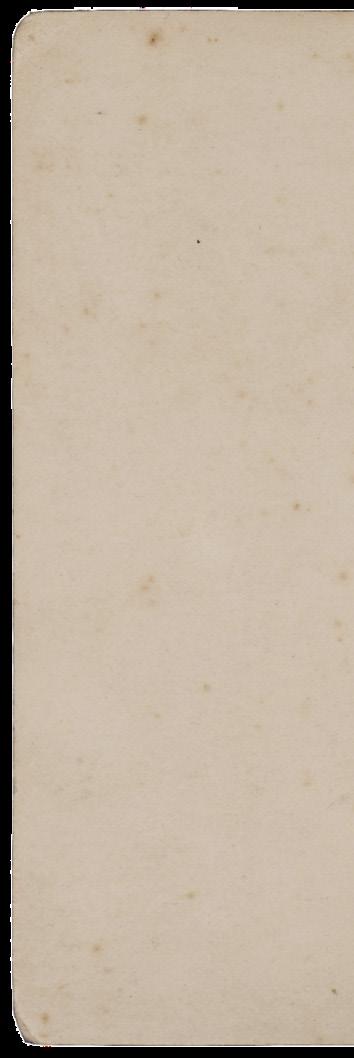

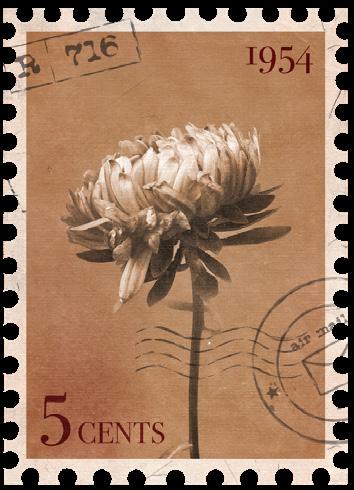
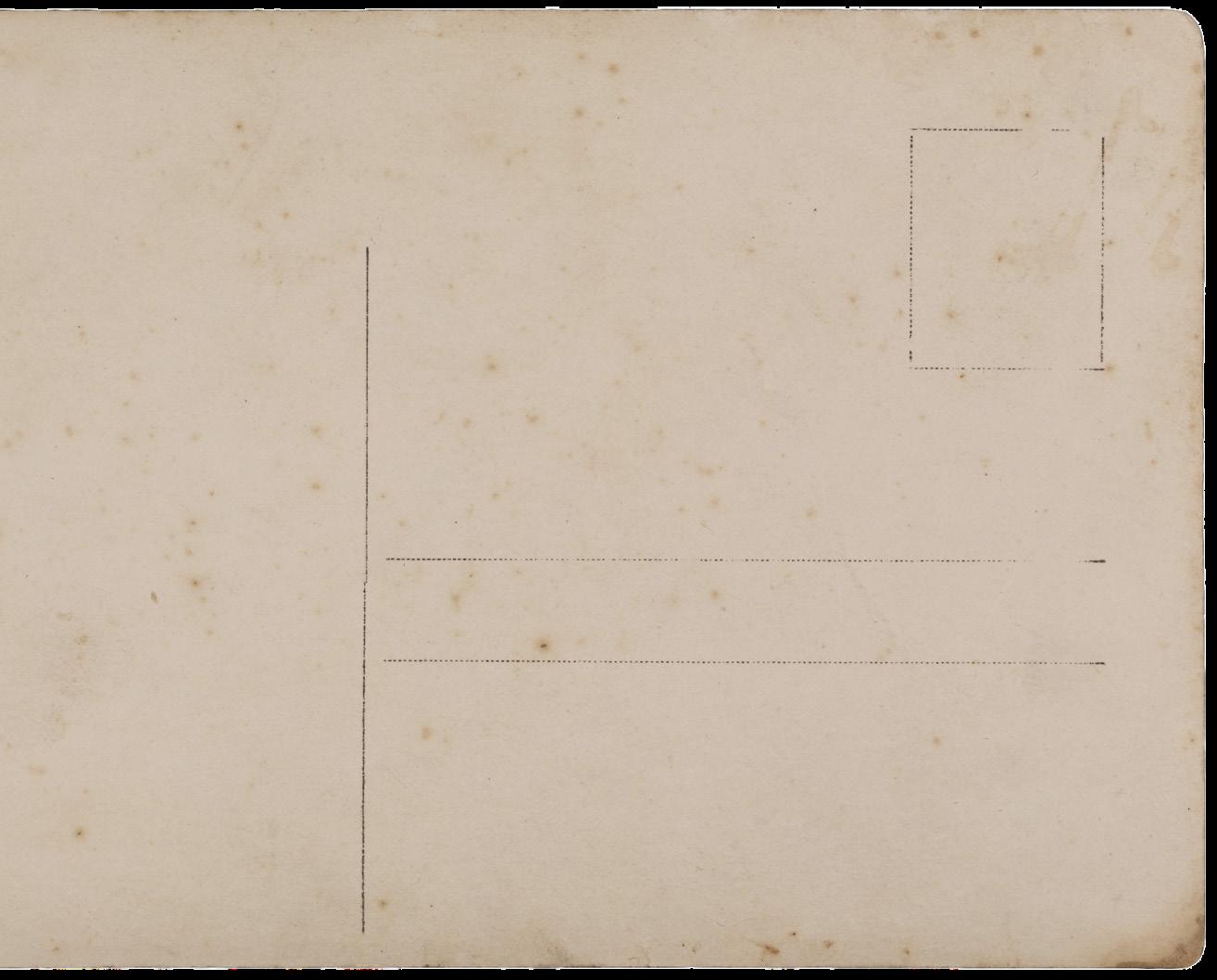
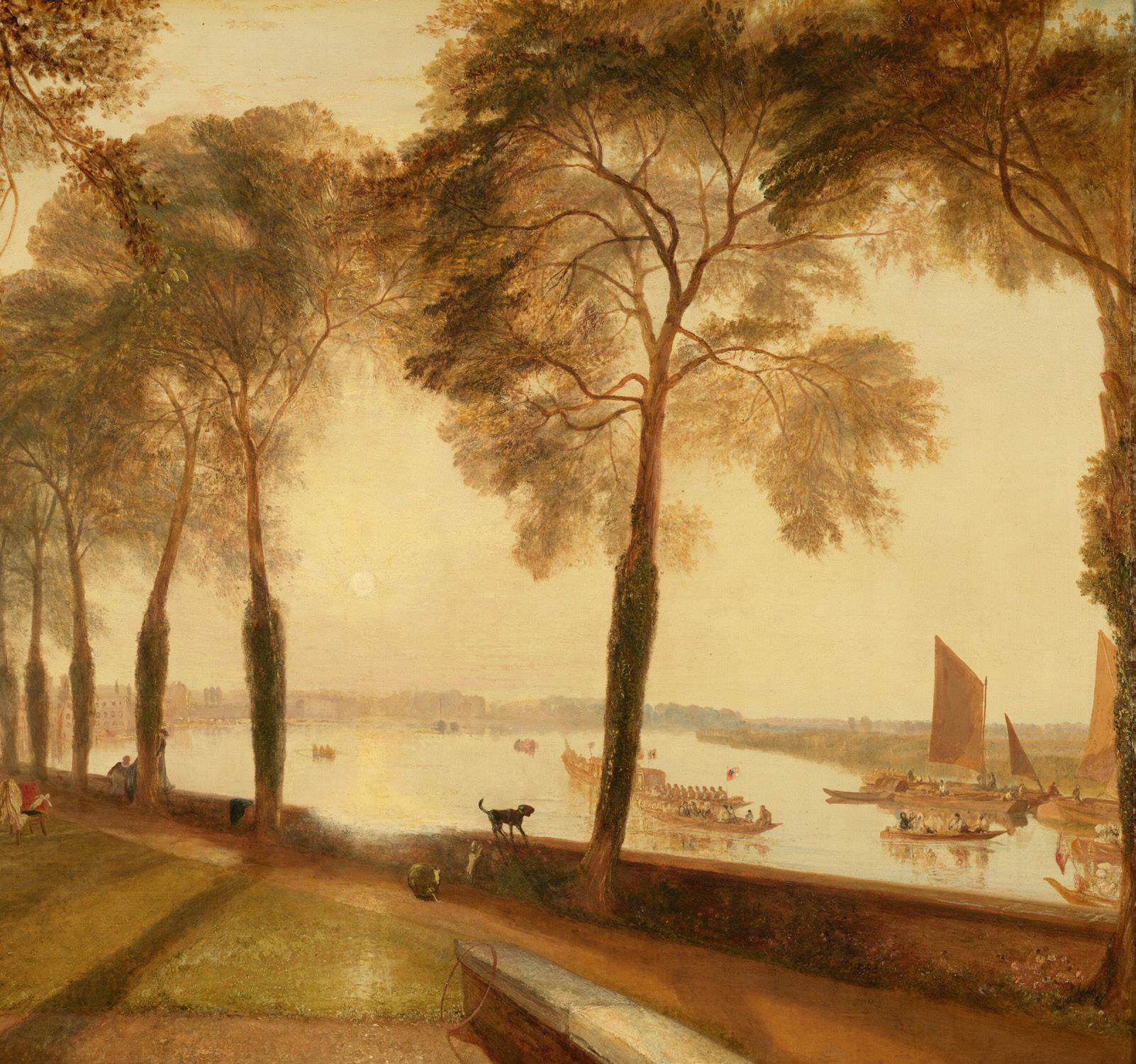
i’ll never forget that moment when my spirit arose to meet Yours
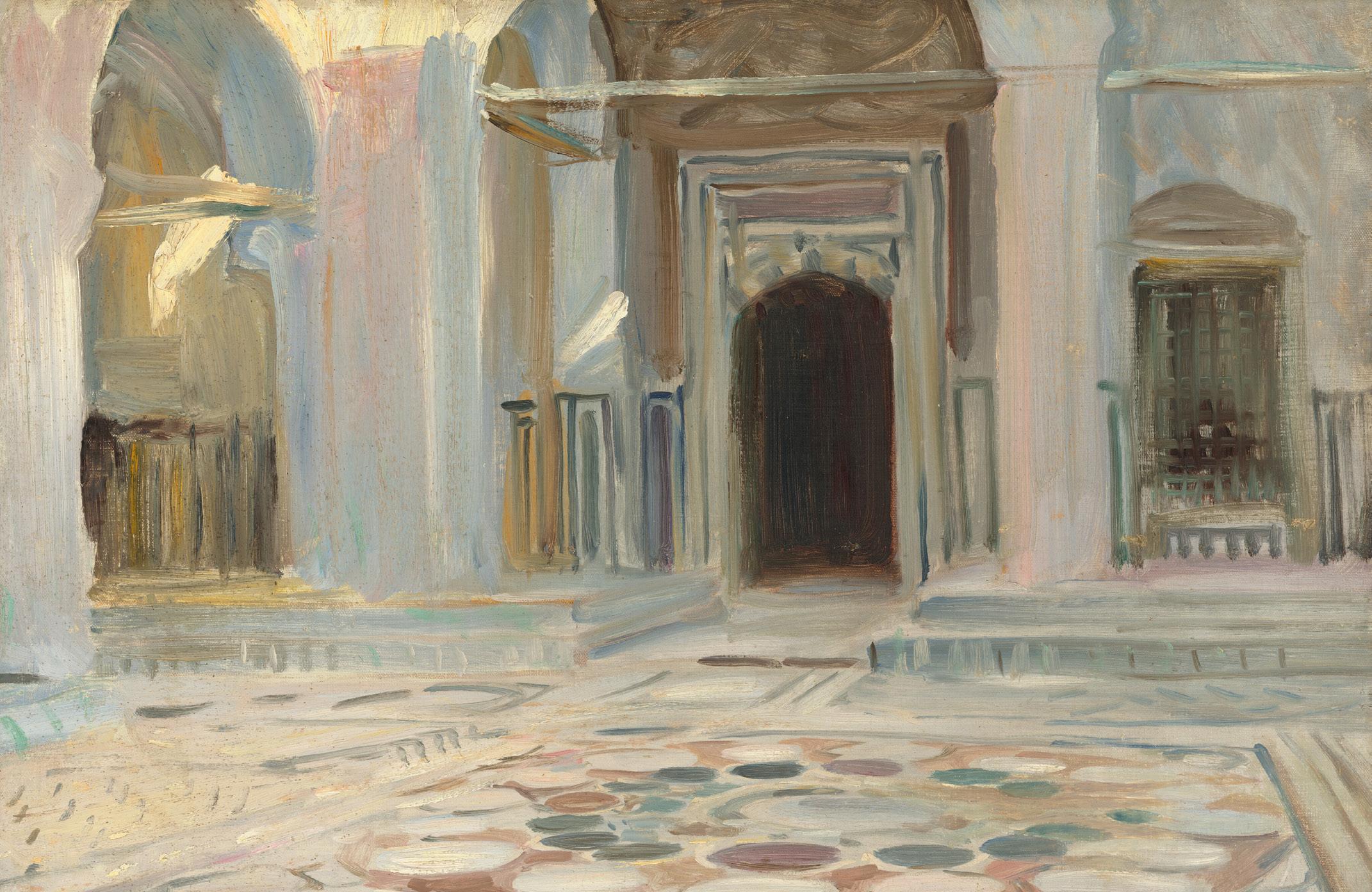
together we shared in brokenness with a hope that would prevail
if it’s not for Love what would it be for p.s.
hey,
I love you.
my final words, the closing remarks. the words i pray will be etched on your hearts a farewell to the life that we lived, in this place together.
too quickly gone, yet a gift stained with grief that remind us of yearning and longing for a promise of forever
for the bread that was broken for the feast prepared, together we shared in brokenness with a hope that would prevail.
here in these moments i pray you would not forget what filled the spaces between where broken met broken in Grace.
to remember the ministry to which you have been called one of Love and for His name for if it is in the cup when not if, we are undone— we will never escape His embrace my heart gives thanks for you i give Him praise. you refresh my soul and fill this space in the joys and teachings, grief and tears, i pray the words from above would linger not in air but, weighted
and rooted by deeds of Love that sang shouts of truth from a cross to bear
which cemented and made concrete the Love He has for you and for me for a life so freely given would not be without
the life well lived with you and you with me and He so, P.S.
I love you
Pavement, Cairo | John Singer Sargent, 1891
The golden paint on the column elicits the sweetness of evening sun and fellowship in Emily’s poem. The painting’s standstill yet airy atmosphere represents the bittersweetness of farewell.
This piece is written as a goodbye letter from both the perspective of Jesus to His disciples and myself to the people I have encountered during my years at Emory, who have taught me and shown me God’s love in ways I never could have imagined.
Iwalk along the dirt path as the sun sets, people chattering as they pass. The building where I’m meeting them comes into view, orange sunlight sliding down its sides.
In the twilight sky, stars behind stars all peer at the pale blue dot where I stand. Father, the things We made look beautiful even from here. Between one star and another is a distance of darkness which spans lightyears, and I remember the beginning when We were there together before the deep void, before this world existed and its foundations were laid. You loved me then,1 and You love me now. And now, I’m coming home.2
I enter the doorway and start up the steps. I can already hear their laughter echoing from the room. My heart quickens. This is what I wanted, before I suffer: a Passover meal with my friends!3
The chatter of their voices envelops me as I enter the room. They’re all here, reclining on couches around the table where Peter beckons me loudly while setting down a bowl of sauce next to the lamb, olives, and loaves of bread sitting mingled with glasses of wine. Andrew and Phillip turn to greet me, while Thomas and some others are still engulfed in conversation. Matthew waves at me from the corner. John slides over to make room, and I lie down next to him. He leans against me, reaching for an olive on the table.
So we eat, and we talk. I won’t eat this meal with them again until that day, after everything, when we’ll meet again in the kingdom of God.4
They smile as they chew, thinking things have not changed and will not change for a long time. But I know my time has come. Judas lies across from me, his heart set on betrayal.5 There is a pit in my stomach. This is ending, and I have to be the one to tell them.
“Truly, truly, I say to you. One of you will betray me,” I say.6 The room turns quiet. Eating stops. They glance at one another.
Judas has left. The air is heavy, and heavier now because I have told them another thing: I am going away, somewhere where they cannot come. I give them a new commandment to love one another. This is how people will recognize they are my disciples, by their love for one another.7 Yet even as I’m speaking, I see how my words fall from their ears.
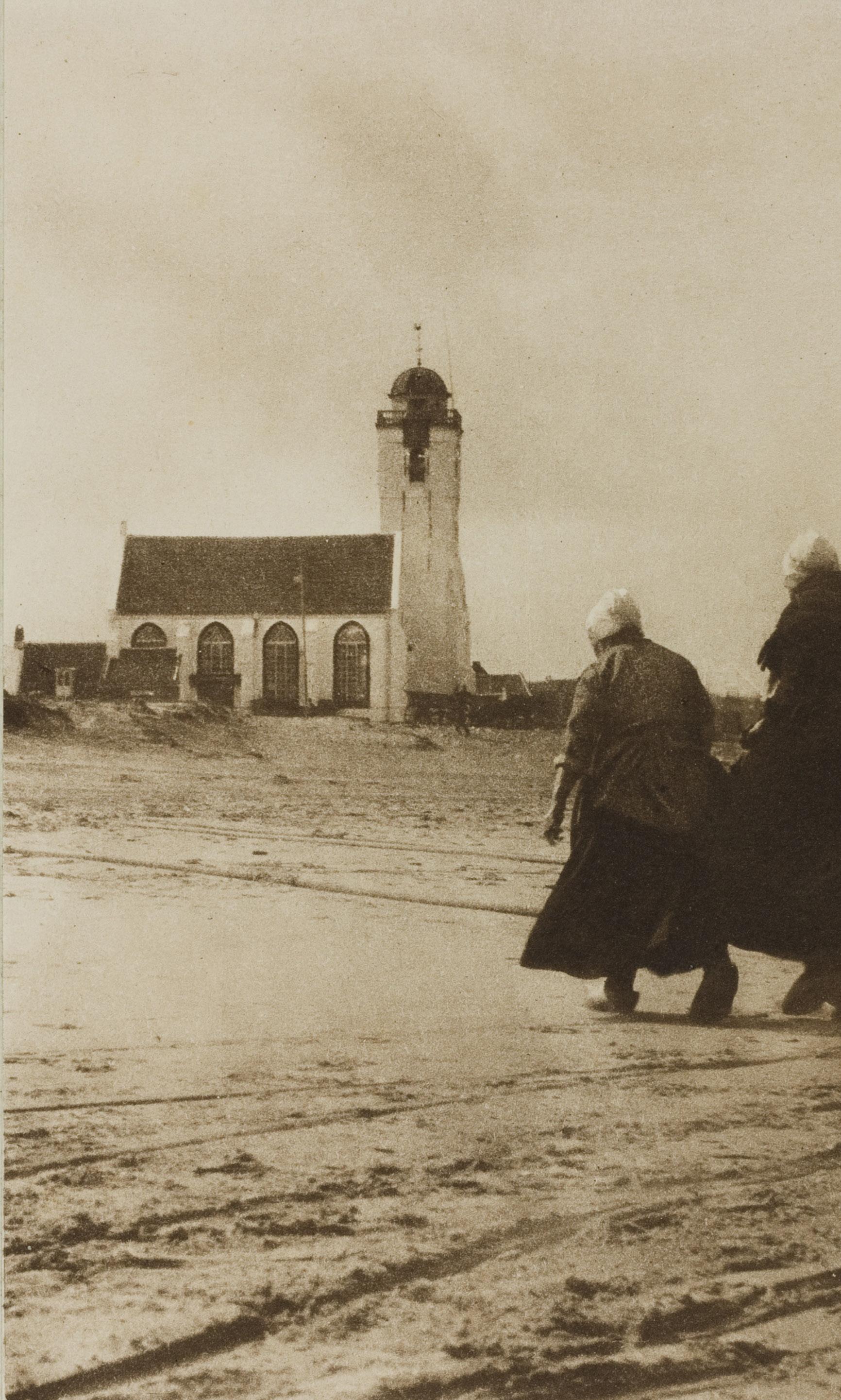
“Lord, where are you going?” Peter asks.
I reply that he cannot follow me now, but will follow afterward.
“Lord, why can I not follow you now?” he asks. “I will lay down my life for you.”
They try to understand, but their expressions are pained. I know that after everything has taken place, after I have died and risen again, the Holy Spirit will remind them of all I have said and they will believe.8 But here, tonight, their faces are fallen and filled with grief.
“Will you lay down your life for me?” I ask. “Truly, truly, I say to you, the rooster will not crow till you have denied me three times.”9
Instantly his face changes. I look at my friends, and they are all sad. Will any of you be by my side when my time comes? I am going to die, and more than that… A dread crawls up in my gut, and a bead of sweat drums along my forehead.

Soon, Father, I will plead with You in the garden.10 Right now, I give them all the words You’ve given me.11
“Let not your hearts be troubled,” I say. “Believe in God; believe also in me.” I say that I will prepare a place for them in my Father’s house.12 I will come back for them. I will take them home where I will get to show them the glory the Father has given me.13 When I see them again, we will have a grander feast than this. A happier one.14
They watch me with questioning eyes, seeing a face that is at once grieving yet joyful, hurting yet hopeful, full of dread yet glowing with strength and anticipation.15 I am a mystery to them.
I have so much left to say, but I won’t say more than they can bear.16 I make them a promise. I will ask my Father to send them the Holy Spirit, who will be with them forever. Through the Holy Spirit, I will dwell in them.17 Because of the Holy Spirit, it is even to their advantage that I leave!18
My friends do not rejoice, though I wish they would.19 But I understand. I remember our arms brushing against each other as we walked side by side. The embraces we shared, the tears we cried. They have loved the warmth of my flesh, the sound
1 John 17:24
2 John 13:1
3 Luke 22:14
4 Luke 22:16, Mark 14:25
5 John 13:2
6 John 13:21
7 John 13:34-35
8 John 14:26
9 John 13:36-38
10 Matthew 26:38-39, Hebrews 5:7
11 John 17:8
12 John 14:1-2
13 John 17:24
14 John 16:22
15 Hebrews 12:2
AUTHOR’S STATEMENT
16 John 16:12
17 John 14:16-17
18 John 16:7
19 John 14:28
20 Matthew 10:29-31
21 John 13:15
22 Matthew 14:31
23 John 14:31
This is a work of fiction heavily drawn from the Gospel of John and other Biblical passages. This piece is an imaginative exercise about Jesus’ experience during His last supper with the disciples preceding crucifixion, and it is an imperfect offering of empathy for the One who humbly calls me His friend.
of my voice, the smile when our eyes meet. The ways of intimacy here, Father, We have wonderfully created. And don’t I understand too? I have loved them, their laughter and their little dusty feet, in step beside mine.20 And haven’t I held each one in my hands this night? Their callused skin, caked with dirt, and the delicate parts, rubbed raw and blistered – all these I have washed in love. But even then, I was setting an example.21 And even now, I will cleanse them in a greater way.
But look at their faces. I catch Peter’s gaze, and he looks away, indignant and ashamed. Are you thinking of what I said earlier about you denying me three times? I remember that night on the sea, when you stepped onto the waves to where I was. You gripped my hand so tight it hurt, as the waters buffeted against us, both our bodies shivering in the storm. You shrieked at the waters I lifted Noah’s ark on, the waters I divided for your ancestors to walk through, and squeezed my hand like a child for dear life. And I said, “You of little faith…”22
The sun has set, and the night approaches. “Rise, let us go from here,” I say.23
P.S.“Greaterlovehasnoonethanthis,thatsomeonelay downhislifeforhisfriends.Youaremyfriendsifyoudo what I command you. No longer do I call you servants, for the servant does not know what his master is doing; but I have called you friends, for all that I have heard frommyFatherIhavemadeknowntoyou.”
John15:13-15
ARTIST’S STATEMENT
Scurrying Home | Alfred Stieglitz, 1894, printed 1897
The warm sepia coloring of the photograph and the image of walking beside a friend evokes both the intimacy and melancholy of Jesus’ last dinner with his disciples and certainly the intimacy and melancholy of Emma’s narrative.
The story of humankind is an amazing story. Really. It’s just incredible. Don’t you agree?
Too bad! You missed it. By, like, 2000 years. The plot is done. Whoops.
So, what exactly is it that you see around you today?
It is the postscript to a centuries-long narrative. The basic story is this: A loving God creates the world, and places in it creatures designed to live in harmony with Him and with each other. Crucially, the creatures have their own agency, and it does not take long for them to begin to prioritize their selfish desires over kindness to each other and to their Creator. This selfishness breaks the harmony of the physical world, and each successive generation’s freely chosen transgression degrades the world’s spiritual and physical fabric. One can call this decay by many names; “death” is a common, or perhaps “entropy” for the more scientificminded among us. In either case, God sends messenger after messenger warning that these actions have consequences, and that for harmony to be restored these societal wounds must be healed. This is the core conflict of our narrative: If God is all-loving, and also just, as He claims, He must somehow enact justice for all of these wrongdoings and also forgive their perpetrators of punishment. He comes to earth himself to make His appeals for grace directly. Disgusted by his challenging of his behavior, the people on earth execute him. Rather than exacting revenge or dealing out a just punishment, God accepts this pain on Himself, and with it all of the punishment needed to make amends for the broken world. The suffering of humanity, past, present, and future, is exacted not on its perpetrators but on God and in the same instant forgiven by Him. The worst of humanity will never be enough to break Him, and so on the third day, He emerges from death and heralds a new era of joy and salvation, for all those who wish to join it (for no one would be forced). The end. We now live in the epilogue of this story, patiently waiting for an ultimate, unconditional, and certain victory and rescue from the brokenness we create for ourselves.
Happy ending. Right?
It doesn’t feel like a fairy tale happy ending- at least, not to me. Turn on the news and see what I mean. The world is a dark place. Then again – happy endings do not mean that the consequences of the main narrative have not left their mark, nor does it mean everyone, and everything is magically restored from conflict all at once. If this were not the epilogue, I would be terrified. Even the most devout among us have moments where they give in to their selfish or careless wants. To see war, death, and pain, one only needs to open their phone. Sin causes hurt, brokenness, vengeance, all things that themselves beget more sin and more pain until the world is drowned. And yet, the Christian message is one of joy, celebration, and certainty. Christ is victorious, the world is redeemed, and yet we’re still here. What does that mean for us?
“It’s because we live in this epilogue that Christ calls not for the strong to flock to his banner but for the weak.”
The world is still very broken. I disdain war as a metaphor, but if one views the Christian life as a battle then we are losing decisively. The Christian life is hard. It requires us to empty ourselves totally, in service of others and of God. If everyone did this, things might be alright – the love you pour out would be poured back into you. But this is not how the world works. None of us are so selfless as to never slip up. In fact, for most of us, failure is the norm. If we cannot fulfill our Christian mandate, how can we have a hope of redeeming ourselves, much less the world? This epilogue is not one where everything is fixed, but one where we know everything will be fixed. This platitude carries more weight than I think we usually give it credit for. Consider the alternative: How many of us have felt hopeless in the face of all the suffering around us? It’s a natural feeling. On our own we are helpless. The world shatters us. Indeed, sometimes we shatter ourselves. If we are alone, then the human story is a tragedy, and we rage helplessly against inevitable failure.
But we are not alone. We have never been alone. Far ahead in every direction, the Almighty God thunders across the horizon. The armies of death and decay shatter

against Him, entropy quails before him, and his pace grows quicker and quicker. The battlefield we arrive on is empty, a dusty relic of a war that ended centuries ago. We see, on the horizon, that rescue rides towards us, a rescue that comes for all. This does not mean we exist passively. We march onward, with reckless abandon and hope, because it is what we have been told to do. We march onward because it is right and just. We march onward without fear because we know once and forever that we have one, and that, despite our own best efforts, God is bringing us to a happy conclusion. We march onward, in full confidence, because the God who loved us has rescued each of us despite our flaws and failings and will keep us in His embrace so long as we wish.
It is because we live in this epilogue that we face the world without fear, knowing the outcome is already decided. It’s because we live in this epilogue that Christ calls not for the strong to flock to his banner but for the weak. The church does not build an army but a refuge, an unassailable shelter for all of those who the world has cast out, for all of those who weep and mourn, for all of those who have been worn by the constant wear that life inflicts. It’s because we live in this epilogue that there is nothing we can do to forfeit this promise. A victorious hand is offered to us, through no action of our own. The story is ended, and all we need do is close the book.
So yes – epilogues are pretty neat.
Full Moon | Nathan W. Pease, 1850-1874
While the full moon is not the last phase of the lunar cycle, it does represent a climax of sorts. Pease’s photograph of the full moon evokes a sense of finality, while the waning phases of the lunar cycle represent the epilogue we live in. Nature and space often exemplify the beautiful love letter God has crafted for us, and the moon is no exception.

I joined In Via in the Fall of 2020 during my freshman year when I met Annie Li, who started the Augustine Collective chapter at Emory. I remember vividly how we met up to talk about her vision for the journal, and immediately, I knew I wanted to be a part of this chapter. Four years later, and I’m still here. My only regret is not getting involved in it more. Writing for In Via probably pushed my creative juices even more than my college writing courses. Although In Via’s mission is to spark conversation about the gospel through thought-provoking creative and written works, I spent maybe a bit too much time focusing on the excellence of my piece rather than the substance of it. (I wanted to sound cool, mysterious and intelligent so badly!) The Lord, knowing me, often placed this verse on my heart
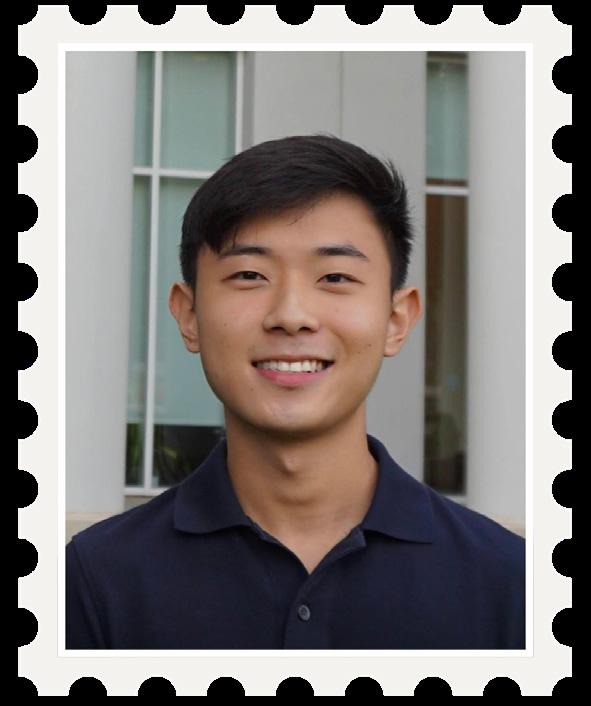
The past four years of college have been a project in discovering my identity as God’s child made in His image. My time at Emory helped me embrace my love for reading and writing as I strengthened my passion for mental health advocacy. While the crystallization of my academic interests was exciting, reclaiming my sonship to the Father was what was most important. Learning the Father’s voice, touch, and guidance has allowed my identity as His son to take its rightful throne in my life.
as a gentle reminder:
“For Christ did not send me to baptize but to preach the gospel, and not with words of eloquent wisdom, lest the cross of Christ be emptied of its power.” (1 Corinthians 1:17)
It’s so interesting how the mission statement of this club challenged me to be very real about my faith. Translating my personal convictions into coherent words was very challenging. Nevertheless, the process always pushed me into an intimate space with the Lord, and He used that opportunity to speak deeper revelations into my heart.
For those who are hesitant to write, I want to encourage you to take the leap of faith. Almost every piece I’ve written, I was always tempted to text Ulia, Brandon, Annie, or Kevin the “hey ~ I don’t think I can do this ~” text. But at every junction, Jesus always encouraged me that even I was a vessel not too broken, too sloppy, or too busy for Him to gladly use. So, you should go for it! Isn’t it pretty exciting to witness what God can do?
P.S. CHOA food court slaps and it’s legit less than $7 for almost every entree.
God also used these past four years to remind me that creativity was a key way that I could bear resemblance to Him. As a son of the Creator, I was made to create. Within this powerful revelation that bloomed throughout my time in college, In Via became a blessed space for me to exercise this gift. In Via encouraged me to articulate my faith and express it in ways that reveal the beautiful grace fueling it. It taught me to remove myself from the center of my work and allow the gospel to receive full glory. It also inspired me to love God with my mind while humbling myself before the grandness of who He is.
I am thankful to Jesus for chasing me down, clarifying my identity, and transforming my life with His love. As I leave Emory, I walk with the assurance and eagerness to glorify Christ in all that I do.
P.S. The DCT is criminally underrated… enjoy it while you still have meal swipes!
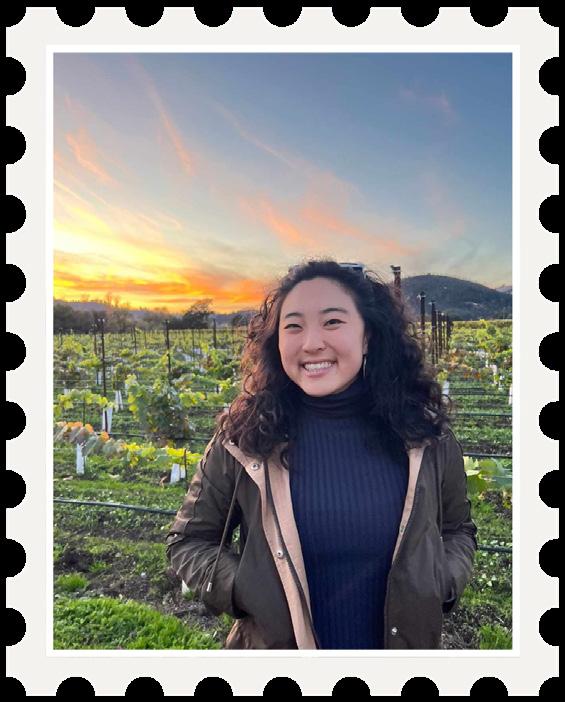
I wasn’t supposed to go to Emory. I was completely prepared for a different school & city with a future roommate selected and a list of churches to visit once I moved away from home. But God, in His mercy, and perhaps, humor, miraculously got me off that waitlist and blessed me in ways I could have never envisioned by bringing me to Emory.
He took my carefully curated college plans and gave me something different and ultimately better. Over the
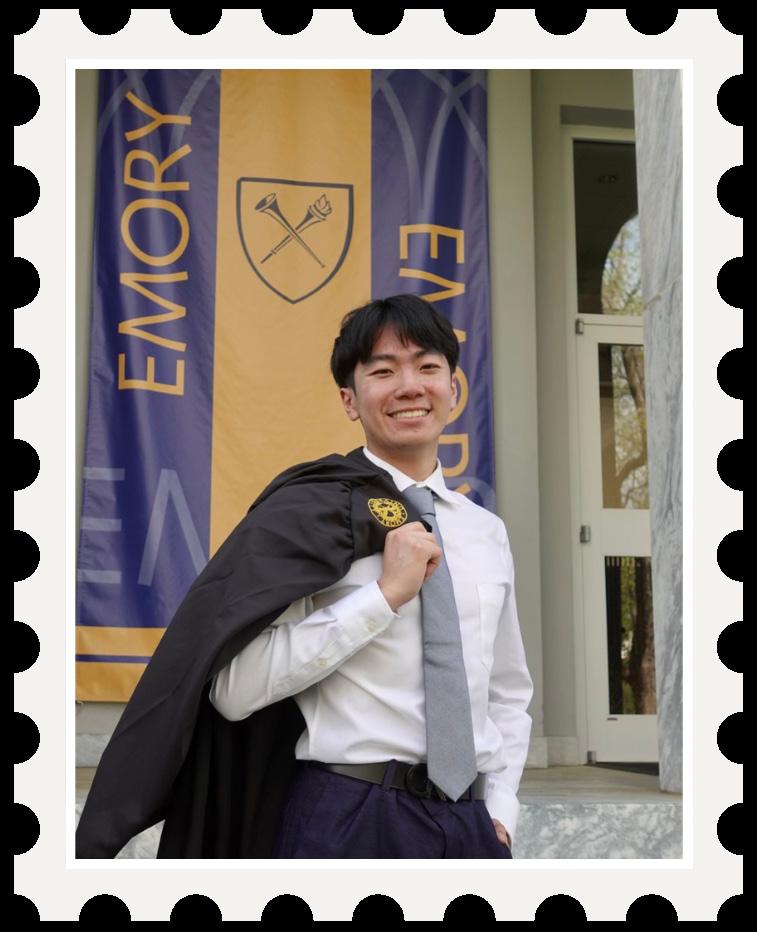
Hi! Thank you for reading this. I originally joined In Via because Annie Li, the founder and editor-in-chief of In Via convinced me to go on a Boston trip to see journals from other conferences. I was inspired and met people I still keep in contact with.
I was just a general body member as a Sophomore, but I was asked to be treasurer. I never would’ve expected myself to be doing the work I thought I
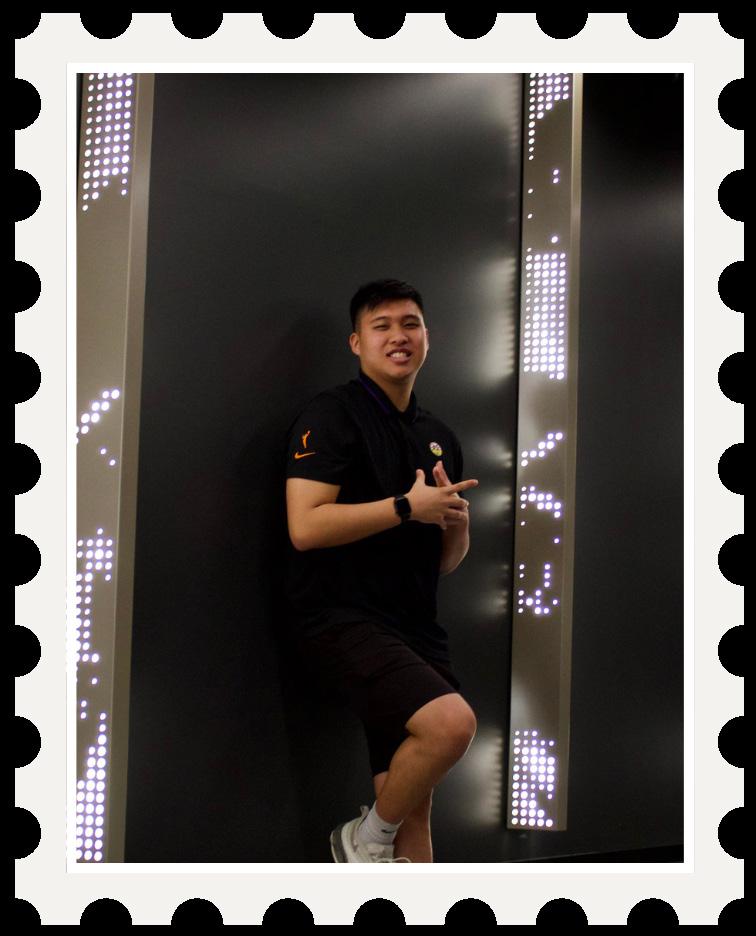
Throughout my college career, I have learned and matured a lot, whether that be academically or socially. However, God has really used college as a platform to transform my faith and challenge it at the same time. Coming into college, I wanted to change and be a person of strongest faith by the time I threw my cap up during graduation. God really challenged my faith all throughout college, whether that was testing my discipline by having to drive 2 hours every weekend
last four years, I’ve learned that I love control and I crave perfection. But God has shown me countless times that His love, mercy, and guidance can conquer these desires and bring me back to surrendering all to Him.
So, now, when I get disappointed about not getting something I think I deserve or have planned and worked hard for, I remind myself I already have the most coveted title of all: His daughter. This isn’t to say I don’t have any more idols in my life, but as a graduating senior, I have a clearer understanding about what I’d be missing out on if I didn’t decide each day to try and embody how Jesus walked and thought – humbly & patiently.
I pray that in everything we (In Via, you, myself) do at Emory and beyond, that we make room for God; His plans surely are greater!
P.S. You get free Xfinity streaming as an Emory student! Sports for days! Why did no one tell me this sooner?
was doing if you asked me two years ago. The commitment was also honestly more than I expected, but I learned so much, and this experience was worth the many hours spent making budgets. They’re incredibly fun to do. It was interesting to see how a form can bring you a lot of money and help your club, and to get a glimpse of how other clubs receive funding. I also had a chance to talk with other governing agents in the college for funding, listen in on budget hearings, as well as communicate with faculty in different schools like Candler to seek funding. My takeaway is that planning and making an effort to support the club takes time, but it is so rewarding. I thank the Lord for the opportunity to do such cool and enjoyable work. It reminds me of Ecclesiastes 2:24.
P.S. Work at Cox Computing because the printing benefits are sooo nice.
to make services or really questioning what God has in store for me post graduation. There were many moments where I struggled to find God and rely on God. I had many troubles of giving up my pride and surrendering it all to Him. However, as I reflect back on my college faith walk, I could say that through it all, God has been there with me. I definitely still struggle to fully trust God and do not have the strongest faith. However, post graduation, this walk continues.
With that, I want to leave you with this: Our faith is not about changing who we are, but it’s about becoming. Becoming more grounded in faith, more like Jesus, and believing that God has made us in His image. Changing us indicates we are not good enough but Jesus died for our sins and made us more than enough.
P.S. Don’t ever be the first to show up to any social gatherings with friends, but be the first to show up to church!
